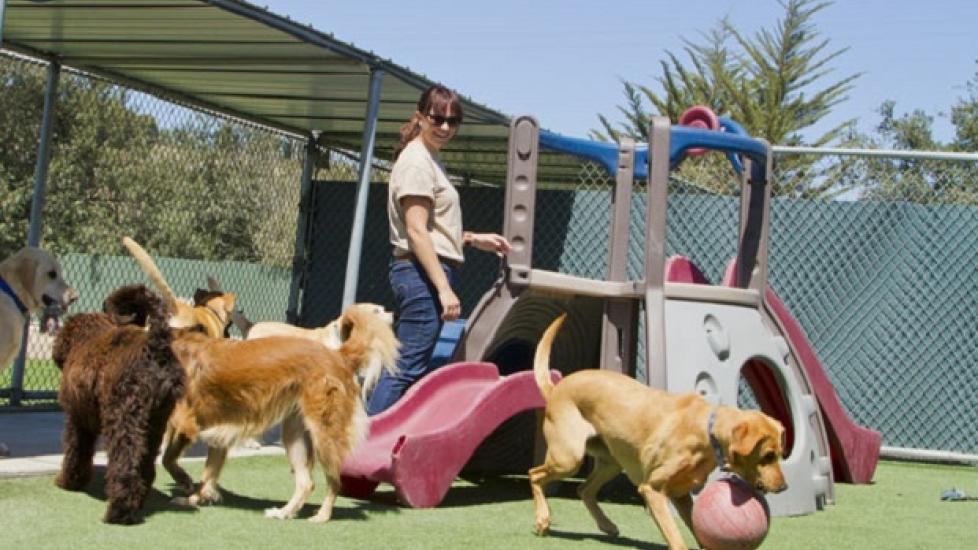What Happens After Socialization?
"I really like your blog, but I have one complaint."
This was my friend and colleague Debbie, who generally says exactly what's on her mind. Her point was that although I talk a lot about socialization in this blog, I don't talk near enough about what happens after the socialization period.
Her concern is that owners will believe that ALL they have to do is expose their puppy until it is 16 weeks old. In other words, that there is no work to be done after that time period. After admonishing her for missing the multiple times that I have written that puppies should be exposed well into social maturity (1 to 3 years) I realized that, in fact, owners could be led to believe that they are done at 16 weeks.
"I really like your blog, but I have one complaint."
This was my friend and colleague Debbie, who generally says exactly what's on her mind. Her point was that although I talk a lot about socialization in this blog, I don't talk near enough about what happens after the socialization period.
Her concern is that owners will believe that ALL they have to do is expose their puppy until it is 16 weeks old. In other words, that there is no work to be done after that time period. After admonishing her for missing the multiple times that I have written that puppies should be exposed well into social maturity (1 to 3 years) I realized that, in fact, owners could be led to believe that they are done at 16 weeks.
The fact is, new puppy owners are no more done at 16 weeks then I will be done when my daughter graduates from preschool. Just as she will not be mature enough to navigate the world and make good decisions, your puppy will not be mature enough at 16 weeks to stop learning about the world and how to interact with it.
Let’s talk about the different developmental periods and how you can navigate them successfully with your puppy.
The juvenile period spans from 12 weeks to 6 months. What the puppies have learned is already starting to shape their future interactions in the juvenile period. Within this period is a second "fear" period in the dog’s development. Basically, traumatic experiences within this developmental period will be more likely to shape future behavior than those same experiences as a 4 or 5-year-old adult because of the dog’s heightened sensitivities during this time.
You should continue to get your puppy out about 3 times a week, including at least one play session with other dogs and at least one dog training class. I tell my clients that I really don't care what their puppies learn as long as it is taught with humane methods and the puppy is out of the house. Your puppy's positive experiences with the environment should continue through this period until he is 6 months old.
Next comes social maturity (1-3 years). Even though you may not have known that this period exists, you have been through it if you've raised a dog. Many of us have experienced that somewhere around 3 years of age, when our dogs became more easily manageable.
Clinically, during this time period, young dogs begin to test their boundaries. Younger tendencies toward behavior problems often become more obvious during this time. Anxious dogs may become aggressive dogs and noise sensitive dogs can become noise phobic dogs.
Dogs should continue to be exposed at least twice a week during this time, which can include a dog training class and one other outing. Again, I counsel my clients that I am not necessarily concerned about what their dog learns. They should take classes that they are interested in. I am most concerned that their dog leaves their home on a regular basis and experiences the wonders of the environment with a positive twist.
The first outing can be a walk in a public place, a trip to the veterinarian's office, through the drive-through at the bank, or any other place outside of the home.
Remember that these are supposed to be positive experiences, so you should come wearing your highly fashionable treat bag loaded down with all kinds of rewards. This is your time to solidify these behaviors that you have been working so hard to teach, such as sitting for attention and being calm around other dogs.
Remember to smatter in some play dates with other dogs during this time, too, or you may find that your dog's play style really changes in a negative way as he goes through this developmental period.
The bottom line is that you should keep working with your dog through about 3 years of age to ensure that he can live in our world happily.
Good enough, Deb?

Dr. Lisa Radosta
Image: Tatiana Katsai / via Shutterstock
